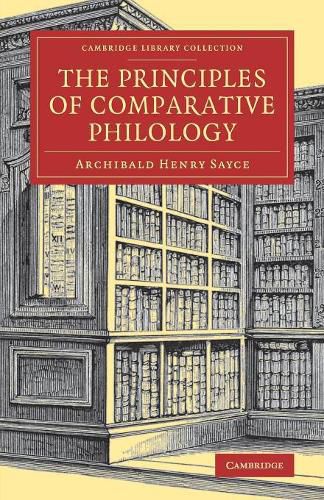Readings Newsletter
Become a Readings Member to make your shopping experience even easier.
Sign in or sign up for free!
You’re not far away from qualifying for FREE standard shipping within Australia
You’ve qualified for FREE standard shipping within Australia
The cart is loading…






Archibald Henry Sayce (1845-1933) became interested in Middle Eastern languages and scripts while still a teenager. Old Persian and Akkadian cuneiform had recently been deciphered, and popular enthusiasm for these discoveries was running high when Sayce began his academic career at Oxford in 1869. This 1874 work, based on a series of lectures, discusses the relatively new science of comparative philology, its disciplines and its relationship to physiology, history, and religion. The work describes the ways in which the laws of language, and especially of language change and development, can be hypothesised and tested. Sayce also considers, and takes issue with, the notion of ‘the metaphysics of language’, and examines the significance of comparative philology to the study of comparative religion and mythology. The final chapter deals with the specific issue of analogy in language development, in particular in relation to changes in pronunciation and word-stress.
$9.00 standard shipping within Australia
FREE standard shipping within Australia for orders over $100.00
Express & International shipping calculated at checkout
Archibald Henry Sayce (1845-1933) became interested in Middle Eastern languages and scripts while still a teenager. Old Persian and Akkadian cuneiform had recently been deciphered, and popular enthusiasm for these discoveries was running high when Sayce began his academic career at Oxford in 1869. This 1874 work, based on a series of lectures, discusses the relatively new science of comparative philology, its disciplines and its relationship to physiology, history, and religion. The work describes the ways in which the laws of language, and especially of language change and development, can be hypothesised and tested. Sayce also considers, and takes issue with, the notion of ‘the metaphysics of language’, and examines the significance of comparative philology to the study of comparative religion and mythology. The final chapter deals with the specific issue of analogy in language development, in particular in relation to changes in pronunciation and word-stress.